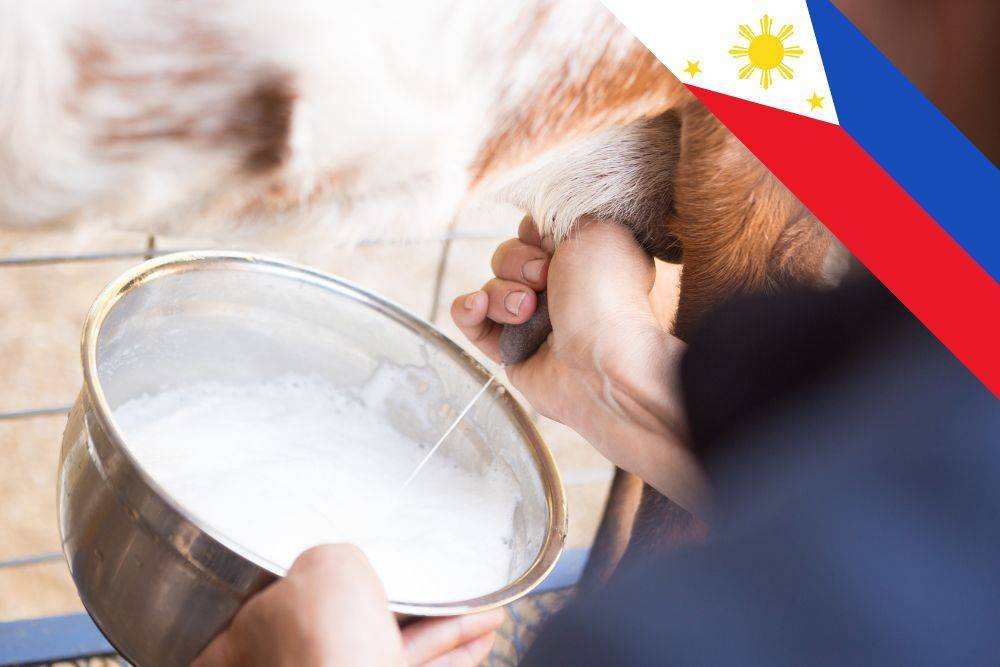Farmers across the Philippines are being urged to wear protective gear, such as face masks and gloves, when handling goats and cattle to prevent the spread of Q fever.
Dr Rontgene Solante, president of the Philippine College of Physicians, emphasised the importance of these protective measures. The reason is due to the increased risk of contracting this zoonotic disease from infected animals. The call for heightened precautions comes in response to recent findings highlighting Q fever in imported livestock. This led to raising concerns about its potential impact on public health.
Detection of Q Fever in Imported Goats
The Bureau of Animal Industry (BAI) recently identified Q fever in 19 of 94 goats imported from the United States. This discovery has heightened concerns about the transmission of the disease to humans who are frequently in contact with livestock. The infected goats were part of a batch imported for breeding purposes. Consequently, their diagnosis has prompted a review of importation protocols and biosecurity measures.
Dr Solante pointed out that Q fever can be transmitted to humans by inhaling contaminated dust particles from animal waste. This transmission mode makes it crucial for those working closely with animals to take preventive measures seriously. Q fever is caused by the bacterium Coxiella burnetii,
Understanding Q Fever
Q fever is a zoonotic disease, meaning it can be transmitted from animals to humans. It is commonly found in goats, sheep, and cattle livestock. The symptoms in humans can vary, ranging from mild flu-like symptoms to severe pneumonia or hepatitis. In some cases, Q fever can become chronic. This can lead to serious health complications such as endocarditis, an inflammation of the heart’s inner lining.
In animals, Q fever often goes unnoticed as they may not show visible symptoms. However, infected animals can shed the bacteria in their milk, urine, feces, and birth products, which can then contaminate the environment and pose a risk to humans.
Precautionary Measures for Farmers
Farmers are advised to take extra precautions, especially when slaughtering animals, to avoid contact with fluids that may be contaminated. Wearing protective clothing, such as gloves, masks, and coveralls, can significantly reduce the risk of infection. Additionally, farmers should ensure proper ventilation in animal housing areas to minimize the concentration of airborne particles.
Dr Solante stressed the importance of personal hygiene. He recommended that farmers wash their hands thoroughly with soap and water after handling animals. Equipment and surfaces that come into contact with livestock should also be cleaned and disinfected regularly to prevent the spread of the bacteria.
Safe Consumption of Goat Meat
While Q fever can pose a risk during handling, eating goat meat remains safe as long as it is thoroughly cooked. The bacteria causing Q fever are killed at high temperatures. Therefore, cooking is an effective measure to ensure the safety of the meat. Farmers and consumers are encouraged to maintain stringent hygiene practices, not only to prevent Q fever but also to avoid other potential foodborne illnesses.
Government and Public Health Response
In response to the detection of Q fever in imported goats, the BAI has implemented stricter monitoring and quarantine measures for livestock imports. The agency is also conducting awareness campaigns to educate farmers about the risks of Q fever and the importance of wearing protective gear.
The Department of Health (DOH) is working closely with the BAI to track and manage any reported cases of Q fever in humans. Health officials are urging those who work with livestock to seek medical attention if they experience symptoms. These are symptoms such as high fever, severe headache, and muscle pain, which are indicative of Q fever.
Conclusion
The recent detection of Q fever in imported goats serves as a stark reminder of the importance of biosecurity and personal protective measures in preventing zoonotic diseases. By adopting proper protective gear and hygiene practices, farmers can significantly reduce their risk of contracting Q fever and help protect public health.
Have a pressing question for a doctor? Medical Channel Asia has launched a community forum page where you can get questions answered by a medical specialist. Visit the community forum here.

